This page provides information on the admission process for the Interdisciplinary Mathematical Sciences PhD Program. It describes the two streams:
- Mathematical and Computational Biology
- Mathematical and Computational Engineering
It also lists the research projects which are accepting students this year.
Research Streams
Research activities under the Mathematical Sciences PhD Program are broadly categorized into two streams: Mathematical and Computational Biology and Mathematical and Computational Engineering with admission interviews conducted separately for each stream. Research labs are placed in one of these two streams.
A. Mathematical and Computational Biology Stream
The interdisciplinary Mathematical Sciences PhD program includes a biology stream which comprises mathematical and computational biology. On-going research projects include, but are not limited to, Bioinformatics; System Biology; Computational Neuroscience; Computational Biophysics; Computational Biology; Evolutionary Biology; Theoretical Biology; Viral Dynamics; Constrained Biomolecular Dynamics; Mathematical Immunology; Network Biology; Biomolecular 3-D structures and design; Evolution of biological systems. Some of the projects may include laboratory component as well.
We are open to admitting students from various backgrounds into our biology stream. In the past, many students with a degree in a branch of biological sciences (Biotechnology, Biochemistry, Bioinformatics, Systems biology etc) have joined this program. Biology background students with inclination towards fundamental mathematics/computing are particularly attractive to us. We also admit students with background in mathematics/physics/chemistry with good inclination towards a branch of biology.
B. Mathematical and Computational Engineering Stream
The interdisciplinary Mathematical Sciences Ph.D. program trains students in mathematical and computational models and algorithms in collaboration with domain experts. This program trains students in the broad areas of mathematical modeling, scientific computing as well as computational mathematics. This program aims at advancing the computational approaches for solving engineering problems that have mathematical flavour. Current students of the program work on interdisciplinary problems like medical image reconstruction, control system theory, numerical solution for differential equations, compressive sensing, reconfigurable computing, as well as visualization methods.
Students with a Masters background in Mathematics and Physics; Bachelors and Masters students in Engineering/Technology with strong mathematical background have been admitted earlier.
Interview Process
Students shortlisted for interviews will be given an information form that they need to submit on arrival. On this form, they will need to choose the research projects they are interested in. If all the projects chosen belong to a single stream, that student will be interviewed by an interview committee constituted for that stream.
If a student selects projects from both streams, he/she will be interviewed by both interview committees. Students will be interviewed on the basics of their area of specialization.
